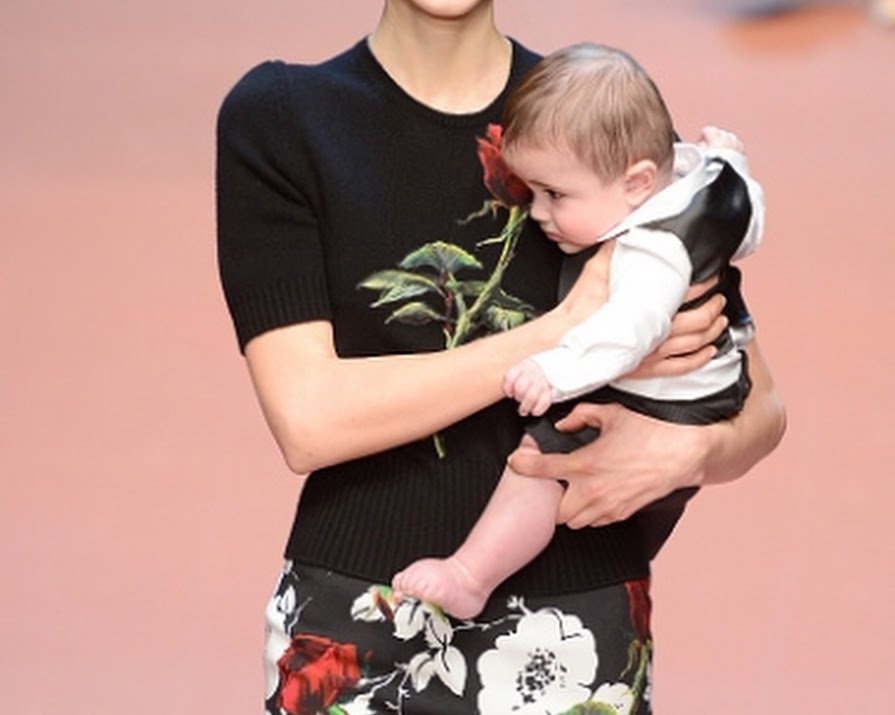
By IMAGE
04th May 2015
04th May 2015
Career women were once seen as feminists and pioneers, as having it all. But today making a career of motherhood is perceived as the privilege of a small few. New mother Jennifer Riddall wonders why women still struggle to feel confident in their choices.
Putting my seven-month-old daughter into childcare for the first time a few months ago was a milestone that divided opinion. While it was no match for that first delicious smile or delightful babble, and definitely not worthy of an esteemed entry in the baby record book, it was an important step for my family and me.
Despite feeling slightly euphoric about returning to a world of deadlines and word counts, I was also hesitant and drove away slowly from the cr?che that first morning. ?Isn’t she a bit young to go into childcare?? asked one family member when I told them I was going back to work. The emphasis on ?a bit young? made me wonder if I was just being selfish about the whole thing. I was sure deep down that I had made the right decision; however, I had a dose of the guilts, and it was me rather than Esme who had to be assured in soothing tones that it was ?OK? and ?not for long? when I dropped her off those first few times.
Although frustrated by the distinct lack of support among some of my relatives, I wasn’t surprised. I may not relish the thought of staying at home full time while my husband goes out to work, but I know that domesticity in this sense is the norm for some. I have also felt the need to justify my decision to people who can’t understand why I would go back to work ?already? – as if maternity leave is a holiday – and struggle to see how adult conversation and going to the loo alone can be considered luxuries.
There are many women who enjoy (and are good at) being at home with their children full time, and many working mums who, given the chance, would be with the kids instead of in the office; however, there are also mums who would rather be at work outside of the home but are unable to because of the high costs of childcare. The job of a full-time stay-at-home mother is not for everyone. Yes, the rewards are far greater than any promotion the workplace can offer, but it’s a demanding role with little recognition of your efforts.

Choosing to leave your children so you can go back to work isn’t easy either. There is often an expectation when you become a mother that you don’t want or need to do anything else, but that isn’t the case for everyone.
Allison Keating, psychologist at the BWell Clinic, says, ?If it works financially for the mother to stay at home and she’s happy to, then that is a relationship that will work. Whereas, sometimes, a mother might be at home feeling isolated and depressed, which can have a negative impact. It’s not as straightforward as, ?if the mother’s at home it’s good for the child?; it’s the actual quality of how the mother feels – is she happy in that environment? It’s about recognising your own needs, and the needs of your family, and making a decision based on what is right, rather than what societally we feel pressurised to do.?
Even if it was financially viable for me not to work, I know that I would still want to because I like what I do and it is my slice of independence. Working mum of three and blogger Andrea Mara started officemum.ie for like-minded mothers. ?It’s OK to admit that we want to do something as well as looking after our children,? she says. ?I think particularly because so many families need two incomes to pay the mortgage, there’s an underlying assumption that if a woman is working, it’s at least partly because financially she has to. This reduces the need for even debating the notion of choosing to work; it’s a defence mechanism of sorts. If I have to work to pay the mortgage, I don’t have to justify it.?

Looking back to when she returned to work after her first child, she remembers, ?I felt anxious leaving my daughter in cr?che those first few days – I think every mother does – and, of course, I cried, but my strongest recollection of being back in the office was one of mild elation. I relished seeing friends again, getting back into work-mode, and thoroughly enjoyed all those clich’s that are so true – hot tea, grown-up conversation and using my brain. ?Working (doing something for myself) makes me happy and that in turn benefits my family,? she adds. ?It’s important for women to be able to freely say that they enjoy working, that they do it for their own fulfilment.?
Going back to work has made me a better mum. In a world where a break is putting a wash on, and a quick tidy round while eating a piece of toast is considered lunch, I appreciate a day at my desk. My energy levels are boosted, and I am excited to spend the odd day making up words to nursery rhymes while blending exotic combinations of fruit and veg for the kitchen walls. More importantly, my return to work has been good for Esme, and when I collect her at the end of a working day, I am like a kid on Christmas Eve and cannot wait to see her happy little face.
Feeling guilty seems to go with the territory of motherhood, but looking forward to work doesn’t make me a bad parent. Becoming a mum has definitely changed my priorities, and I love my daughter more than I thought humanly possible, but I can still be passionate about my career without choosing between the two (although, if I did, baby wins).
Follow Jennifer Riddall on Twitter @JenRiddall.?This article originally appeared in the April issue of IMAGE magazine. The May issue is on shelves now.
LOVE this? Why not have IMAGE delivered directly to your door each month? Check out this month’s offer here.






















